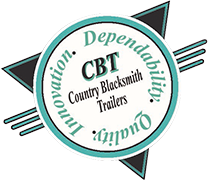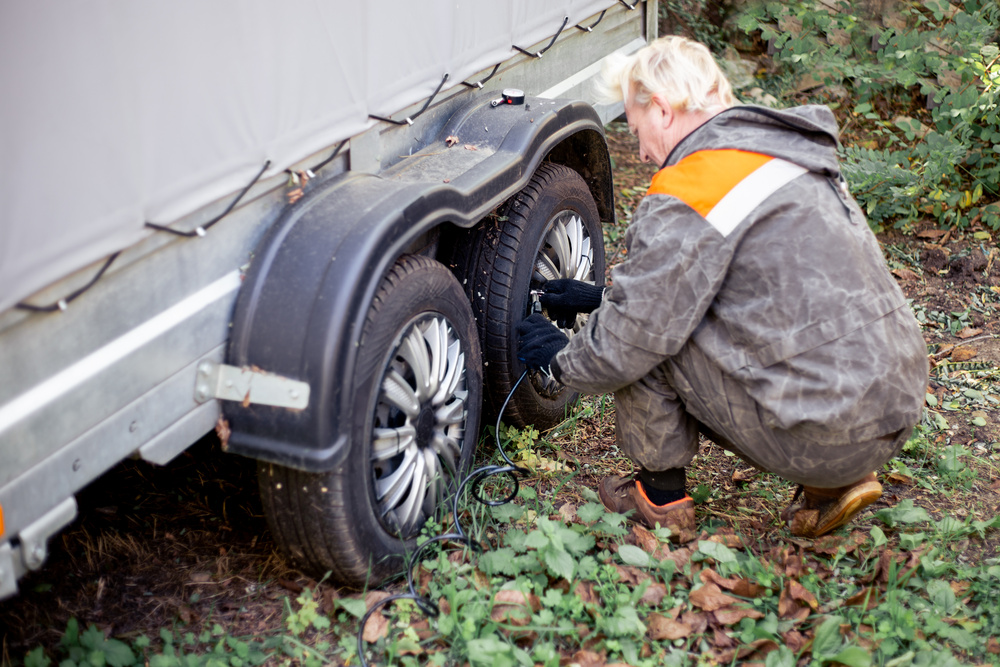Keeping up with a regular trailer inspection is one of the best ways to make sure your equipment trailer, livestock trailer, or utility trailer stays safe, reliable, and ready for the road. Just like your truck or any other piece of equipment, trailers take a beating over time, and small issues can turn into big problems if you don’t catch them early.
Inspection requirements vary depending on the state. No matter where you’re located, following a clear checklist for your trailer can help you spot problems early and stay confident every time you tow.
Taking the time to inspect your trailer now helps prevent unexpected problems later, no matter if you’re using it to haul equipment for work or to transport materials around the farm. A quick check today can save you from costly repairs, delays on the road, and the stress of dealing with breakdowns when you least expect them.
Why Trailer Inspections Matter
A regular trailer inspection isn’t just a formality; it’s an important part of keeping your trailer safe and dependable. Trailers that go too long without attention are more likely to have issues like tire blowouts, brake failure, or wiring problems, all of which can quickly lead to accidents, damaged equipment, or delays when you’re on the job.
Staying on top of inspections also saves money in the long run. Small fixes like repacking wheel bearings or replacing worn wiring are much cheaper than dealing with a major breakdown or having to replace a trailer that’s been pushed too far.
There’s also the legal side to think about. Each state has its own rules for commercial and personal-use trailers, including Illinois, where the Department of Transportation outlines specific requirements for truck and trailer inspections. You can review those details directly on the Illinois DOT website.
Practical Trailer Inspection Checklist You Can Follow at Home
You don’t need to be a mechanic to give your trailer a thorough checkup. By following a simple trailer inspection checklist, you can catch early signs of wear and tear, keep your trailer safe, and avoid unexpected problems when hauling. The steps below outline the most important areas to look over during a trailer inspection.
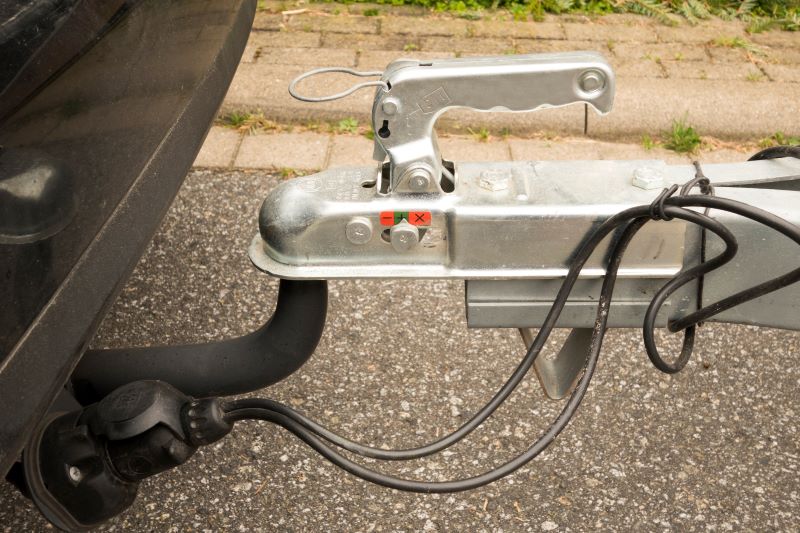
Hitch and Coupler
The trailer hitch and coupler are the first places to look during a trailer inspection since they handle the critical job of keeping your trailer connected to the tow vehicle. After about a year of regular use, the hitch mounts and tow ball often show signs of wear. Start by checking that the frame mounting bolts are still tight and look closely for any cracks around the hitch area.
Next, move to the coupler. The jaw should fit snugly over the tow ball, and the safety latch must be pinned securely in place. A loose or worn connection here can quickly turn into a serious safety issue once you’re on the road.
Finally, pay attention to the weight rating. Every hitch and ball has a specific weight restriction, which you can confirm in the owner’s manual or online. Following these limits is essential to prevent strain on your equipment and ensure safe towing.
Lighting and Wiring
The first step in checking your trailer’s lighting and wiring is simple: make sure the brake lights and turn signals are working properly. Faulty lights aren’t just inconvenient; they can create a serious safety risk and may also result in fines if you’re pulled over.
Once the lights are confirmed, move on to the trailer plug. Carefully examine both the receptacle and plug for frayed or loose wires, as these can interrupt the electrical connection. Even if no damage is visible, it’s a good idea to clean the plug and wiring to keep dirt and corrosion from building up.
Reflectors are another important part of this inspection. Trailers built after 1968 are required to have red and amber reflectors on the back and sides, depending on trailer length. Verifying that your reflectors are intact and properly placed helps ensure you remain visible to other drivers and compliant with safety regulations.
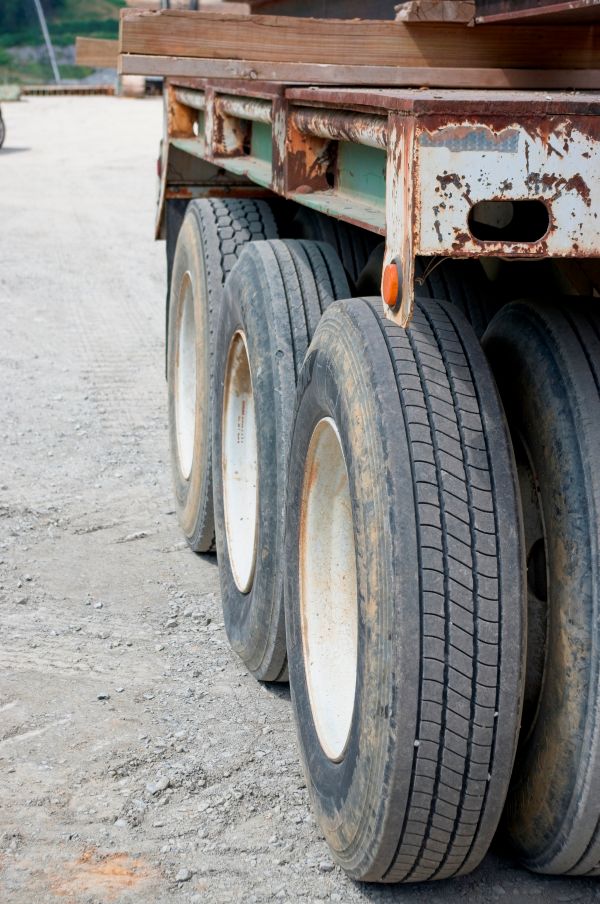
Tires
Tires take the full weight of every haul, so keeping them in good condition is a key part of any trailer inspection. Start by checking tire pressure. Both over-inflated and under-inflated tires wear unevenly and are more likely to fail, which can cause dangerous situations on the road. A quick pressure check at least once a month, on both your tow vehicle and trailer tires, goes a long way toward extending tire life.
Next, inspect the tread. Worn or uneven tread reduces traction and makes it harder to stop safely, especially when hauling heavy loads. If the tread is low, it’s time to start thinking about replacements. Finally, take a moment to tighten and inspect the lug nuts. Even a small amount of looseness can lead to wheel problems once you’re on the move.
Brakes and Wheel Bearings
Brakes are one of the most important safety features to check during a trailer inspection. While your tow vehicle handles most of the stopping power, trailer brakes provide crucial support in emergencies or when hauling heavy loads. Make sure they engage smoothly and don’t feel weak or unresponsive. If they do, it’s a sign they need attention before your next trip.
Wheel bearings deserve just as much care. Knowing how to inspect trailer bearings helps you catch problems before they become serious. Look for signs like unusual grinding noises, excess heat around the hub after towing, or grease leaking from the seals. These are all signals that the bearings need to be repacked or replaced. As a general rule, bearings should be serviced about twice a year to keep your trailer rolling safely.
Springs and Axles
Springs and axles take on some of the heaviest stress every time your trailer is loaded, which makes them a critical part of any trailer inspection. Look over the springs carefully for cracks, bends, or other signs of wear. Damaged springs can affect how evenly your trailer rides and may put extra strain on other components.
Axles deserve the same close attention. A bent or misaligned axle doesn’t just wear out tires faster, it can also create serious safety hazards on the road. If your trailer doesn’t seem to track straight or feels unstable, the axle may be the culprit.
Finally, check all mounting bolts to confirm they’re tight and secure. Loose bolts allow extra movement that can lead to further damage over time.
Plates and Visibility
The last step in a routine trailer inspection is checking the license plate. It should be mounted horizontally, securely fastened, and easy to read, even when the trailer is fully loaded. A loose or crooked plate can fall off or become unreadable, which could lead to fines.
Don’t forget about visibility at night. Your trailer plate needs to be illuminated so it can be clearly seen by other drivers and law enforcement. A quick check of the plate light during your inspection ensures you’re both safe and compliant on the road.
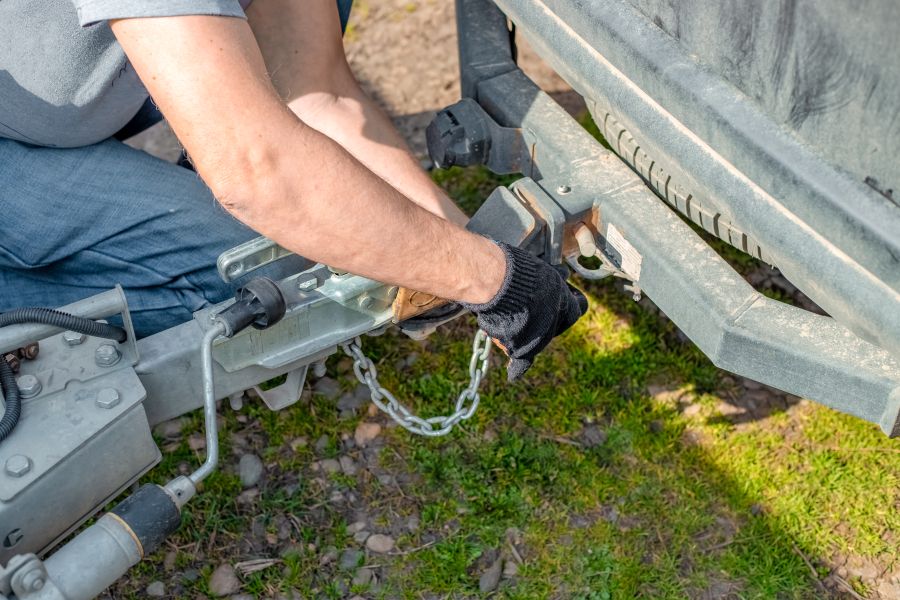
Trailer Inspection Tips for Longevity
A routine trailer inspection is a great start, but a few extra habits can help your trailer last even longer and save you trouble down the road.
Do seasonal checkups. Look over your trailer before long hauls, after heavy use, and especially after it’s been sitting through the winter. Seasonal inspections help you catch small issues like dry bearings or weak wiring before they turn into bigger problems.
Keep a log or checklist. Writing down what you inspect and when makes it easier to track maintenance over time. A simple notebook or a running list on your phone’s Notes app helps you stay consistent and reminds you when it’s time for things like repacking bearings or replacing tires.
Invest in quality parts. Not all trailer parts are created equal. Choosing durable, high-quality components may cost a little more upfront, but they typically last longer and perform better under load. You can find a full selection of dependable replacement trailer parts for sale in store at our parts department
Keeping Your Trailer Safe and Road-Ready
There’s a lot you can handle on your own when it comes to a trailer inspection. Simple checks like testing your lights, monitoring tire pressure, looking over the hitch, and even repacking bearings (if you’re comfortable with the process) can all be done at home with basic tools. Doing these inspections regularly helps catch small issues before they grow.
That said, not every repair or adjustment should be DIY. Complex wiring problems, brake service, axle alignments, and suspension repairs are best left to professionals who have the right equipment and experience. Coming to us for trailer repair means you’ll get expert service from a team that works on trailers every day.
Ready to schedule your inspection? Contact us today and let our team help keep your trailer safe and dependable.
Need Trailer Service? We're the Team You Can Trust.
From routine maintenance to major repairs, our team will keep your trailer in top condition. With over 15 years of experience and a reputation for getting the job done right, we handle all types of trailer repairs—regardless of brand.
